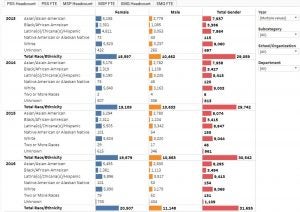Alternative Resolution
After an initial assessment of the alleged facts, the Title IX Officer may — if the Complainant and Respondent agree in writing — begin an Alternative Resolution process.
How does Alternative Resolution work? Please read on for more information:
Voluntary Participation

A non-exhaustive list of remedies from voluntary participation in Alternative Resolution include:
- separating the parties;
- providing for safety;
- referring the parties to counseling;
- mediation (except in cases of sexual violence);
- referral for disciplinary action;
- an agreement between the parties;
- conducting targeted preventive educational and training programs; and
- conducting a follow-up review to ensure that the resolution has been carried out effectively.
Title IX Officer Authority & Discretion

The Title IX Officer has discretion to
- determine whether the complaint is appropriate for Alternative Resolution,
- determine the type of resolution to pursue,
- stop the process at any time before its conclusion and move to a Formal Investigation or (if it applies) DOE Grievance Process, and
- deny an Alternative Resolution request when the Complainant is a student is the Respondent is an employee.
Right to Written Notification

The written notice to both parties will include:
- the allegations;
- the date the Alternative Resolution process is initiated;
- notification that either party may end the process prior to the successful completion of the Alternative Resolution process;
- the Complainant and Title IX Officer may choose to initiate an investigation when an Alternative Resolution is terminated;
- each party may be accompanied by an advisor and/or support person throughout the process;
- the Title IX Officer will notify both parties of the process’s outcome; and
- PRIVACY: the process is private but not confidential, the Title IX Officer will maintain a record of the process and may share information with others if needed to carry out the resolution, and information shared by parties may be considered in any subsequent Resolution Process.
Timeline

However, the Title IX Officer may extend past 60 days for good cause. The Title IX Officer will notify the parties in writing of the reason for any extension and the projected new timeline.
The actual time required will depend on the specific circumstances, including the complexity of the allegations and the nature of the alleged conduct. The Title IX Officer will consider, approve, and communicate extensions per written guidelines from the Systemwide Title IX Office.
Completion & Right to Investigation

The University will not conduct a Formal Investigation or (if it applies) DOE Grievance Process after a successful completion of the Alternative Resolution Process unless the Title IX Officer determines that:
- the Respondent failed to satisfy the terms of the Alternative Resolution,
- or that the Alternative Resolution was unsuccessful in stopping the Prohibited Conduct or preventing its recurrence.
Record Keeping






